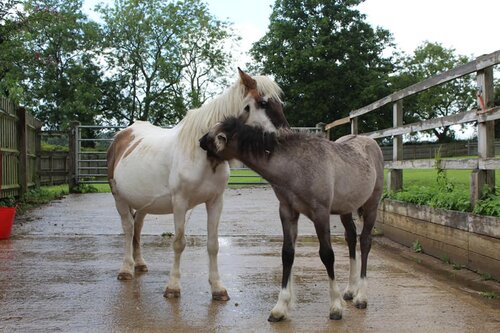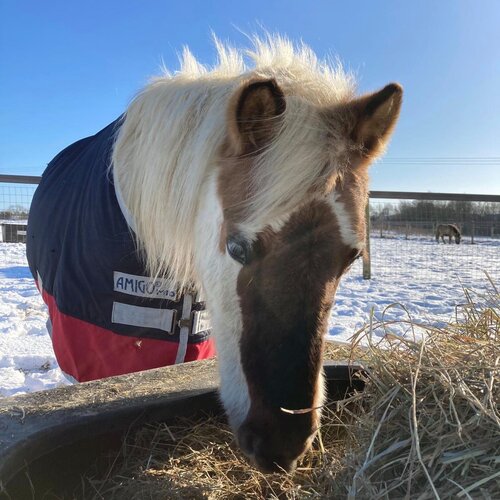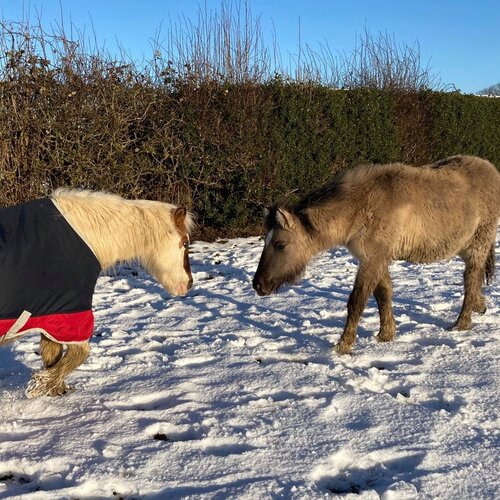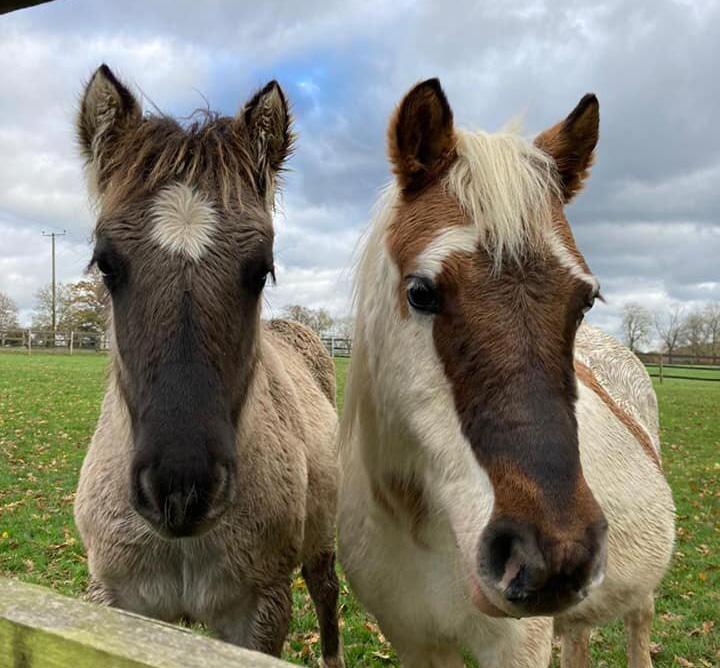
Bronwen and Seren. Credit: The Horse Trust
The Horse Trust is “immeasurably sad” to lose a special mare to the long-term affects of ragwort poisoning.
Bronwen and her filly foal, Seren, were taken in by the charity last year, after being found wandering the streets of Swansea in an “appalling state”.
“She was so deathly thin she only had a body condition score of 1/5,” said a Horse Trust spokesman. “She appeared to have old hobbling wounds on her legs as well as carrying a very heavy worm burden.
“Most noticeably however her skin was in just horrific condition. Both skin and hair was missing in some places and was quite literally hanging off her body others. The damage was so bad she was not allowed out in direct sunlight until her skin had repaired itself.
“She gave all the energy she had to nurse her few month’s old foal which just shows what a dedicated mother she was.”

Bronwen. Credit: The Horse Trust
Both Bronwen and Seren were initially on a very limited amount of grass as Bronwen was so thin she could suffer from the fatal refeeding syndrome if she ate too many calories too quickly.
Both ponies were monitored around the clock by The Horse Trust’s team and their on-site vet, until they showed signs that they were both putting on weight and recovering.
“Even after her years of neglect and abuse Bronwen was a complete joy to work with,” said the spokesman. “She was absolutely petrified of people when she first arrived with us, but our Behavioural Team were so patient with her whilst they worked to build up her confidence.
“Whilst she was quiet and gentle with her handlers, she was quite the boss lady with other horses and would regularly pull faces to tell off the bigger military and police boys if they bothered her from over the fence– nobody was telling Bronwen she was just a little Welsh pony!”
At a recent vet check-up, Bronwen had lost some weight and was very sleepy following sedation. Bloods were taken which showed she was in liver failure.
“Tragically within a couple of days she started to show neurological signs which are a common sequel to liver disease and the kindest thing we could do was to let her go,” added the spokesman.
“After obtaining the biopsy results from the lab it was determined that the liver failure was due to ragwort poisoning. Bronwen must have ingested the ragwort prior to arriving at The Horse Trust, as she was abandoned and scrabbling for enough to eat to keep herself and her baby alive.”

Bronwen and Seren. Credit: The Horse Trust
Ragwort poisoning usually takes around 6-12 months to cause enough damage to the liver to see clinical signs, but it can be quicker if very large volumes are consumed.
Jeanette Allen, CEO of The Horse Trust said the team were “immeasurably sad” to lose Bronwen having got to know the “incredibly sweet pony she was, young and full of promise”.
“It’s a tragedy that having been abandoned with a young foal, caused her to ingest probably a variety of toxic plants to survive and to allow her to feed little Seren,” she said.
“Whilst the effects of this on her skin were horrific when she arrived, we managed to pull her through so it feels extra cruel to lose her to the longer term effects of what was most likely ragwort poisoning.
“The only silver lining in this sad story is that she lived a happy, healthy and loved life since she came to us, and made it through to safely weaning Seren. A true mum and a sweetheart, a hugely sad death ultimately as a result of the actions of inhumane treatment at the hands of those who should have cared for her.
“We are keeping a very close eye on Seren and thankfully she recently underwent a gradual weaning process which has really reduced her stress levels during this traumatic situation. She has now been paired up with Phoenix, and they have already formed a really close bond and Seren is nudging her like she used to her mum, Bronwen.
“We all have such fond memories of our brave little soldier that we will treasure forever. A one-of-a-kind golden girl with a heart bigger than we have ever known. You will be missed more than we can put into words.”









